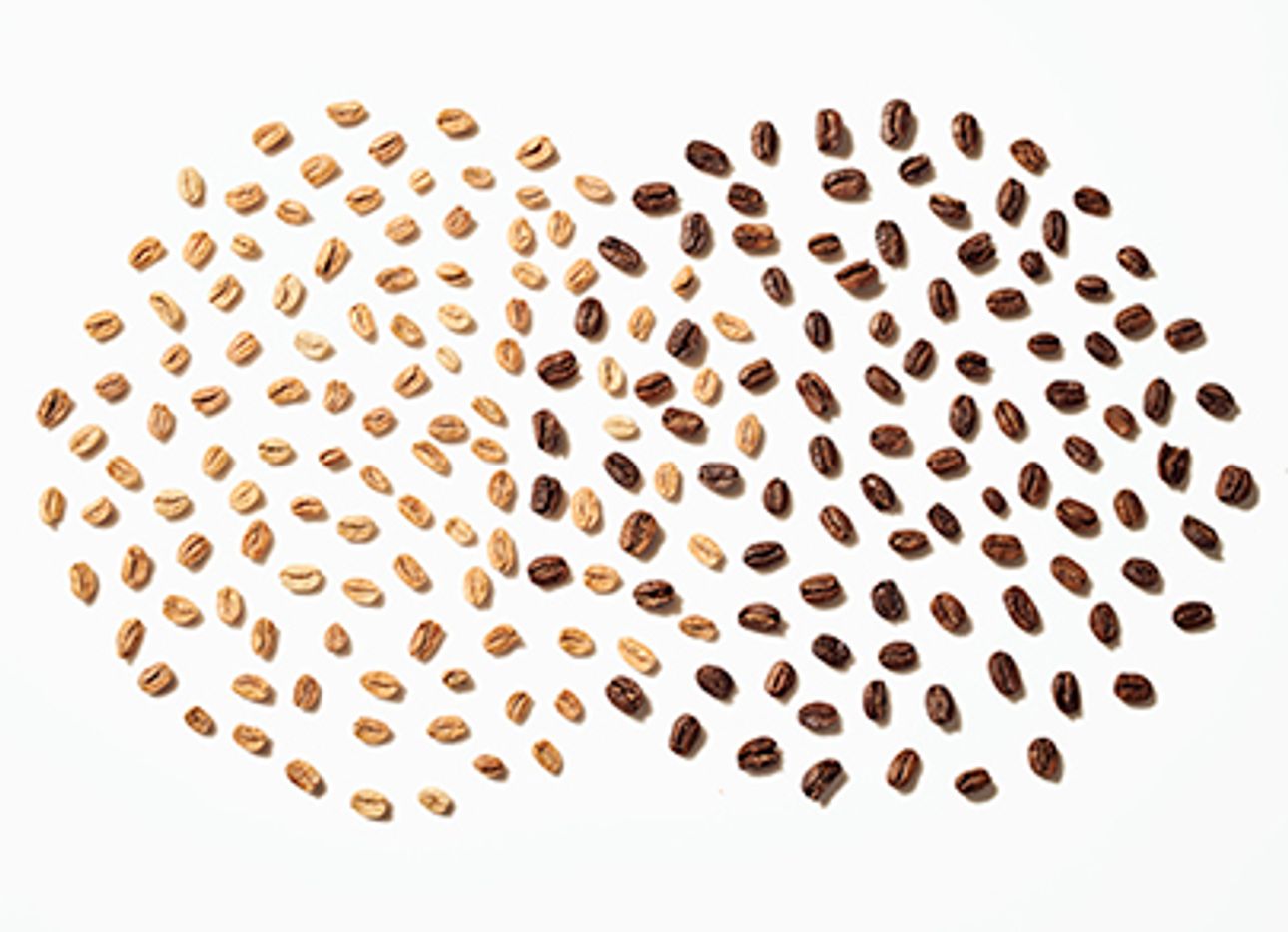
Brooklyn’s Forthave Spirits Collaborates on a Liqueur With Café Integral
Brooklyn distillers and artists Aaron Fox and Daniel de la Nuez, co-founders of the botanicals-focused Forthave Spirits, tell us about their latest concoction, Brown, a coffee liqueur made with locally roasted beans from Café Integral.
You both have artistic backgrounds in painting, writing, and film. What led you to start Forthave?
Aaron Fox: Daniel and I became friends about seven years ago, nerding out over wine and other dinner drinks—amaro in particular. We started to make little experiments in his kitchen, and when that started to take over his dining room, we moved into this space that I would use as a painting studio. A few years ago, we went legit with a licensed space and began making it for people to buy. We started with this love of amaro, and that expanded into aperitivo. From there, our interest expanded into this larger category of what we call “botanical spirits.”
Your color series includes different takes on classic spirits—Red for aperitivo, Blue for gin. Tell us about the newest, Brown.
Daniel de la Nuez: The ingredient came first. Here, where we’re based in [Williamsburg], it’s a big warehouse complex, and there are a lot of small food startups. Earlier on, when we had our beginning studio space, our neighbors were this mother-son team from Nicaragua, and they created a beautiful company, roasting and importing coffee, called Café Integral. We started trading Red for coffee and became friends over the past few years. Naturally, Aaron and I thought, Hey, what if we were to collaborate on something? Forthave is ingredient-driven, so we took a lot of time trying a lot of different coffees, roasting processes, fermentation processes that growers use, and then we landed on this one bean, the Pacamara, grown by Don Sergio Ortez.
What about the Pacamara stood out in particular?
AF: It’s fermented like you would a chocolate, which is an anaerobic fermentation. Most coffee is what you’d call ‘washed coffee.’ You wash the fruit right off of the bean, which is its pit, and then you try it out in the sun. And then there are ‘natural coffees,’ where you let it ferment in the coffee cherry. This has a bit of both; it ferments inside the cherry for a week or two, then it gets a partial sort of dry wash, where some of the fruit and mucilage is left on, but the roots are taken off. Then it undergoes an anaerobic fermentation for another two weeks before it’s put out in the sun to dry. Between that process and this particular bean, where it’s grown, and the farmer, together you get this coffee that’s remarkably chocolate-y.
We do two different processes, then we blend them and age them. First, Café Integral will do a large cold brew for us: they have a giant machine where they can produce three hundred liters of immaculate cold drip. We start with that, then we fortify by adding spirit so that it rests and starts to integrate. Then, separately, we have another industrial-size, special filter we had made for us—it’s a bit like a giant pour-over or French press, where the coffee sits and macerates and ages for a long, slow soak. That one is blended with the cold brew and additionally aged.
How do you like your Brown?
DN: Our focus is on making it so that you can drink it just by itself, as a sort of after-dinner treat. We’ve [had] a bunch of tasty cocktails [that use it]—there’s a pizza shop in Philly that does an affogato with it. There’s been quite a few people who’ve been texting us about mixing it in with their espresso in the morning, and, I don’t know, that sounds pretty enjoyable on a cold day.